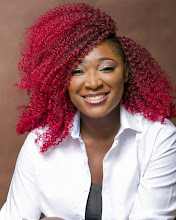Award-winning Author , Chimamanda , Under Fire for Comments Over Transgender
Nigerian award-winning author, Chimamanda Adichie, has been called out by some members of the transgender community in the United States, over her comments about transgenders in a BBC interview on Friday.Chimamanda was asked;
“ a trans woman who grew up identifying as a man, who grew up enjoying the privileges of being a man, does that take away from becoming a woman? Are you any less of a real woman?”
The Nigerian writer responded;
“I think if you’ve lived in the world as a man with the privileges the world accords to men, and then sort of changed, switched gender, it’s difficult for me to accept that then we can equate your experience with the experience of a woman who has lived from the beginning in the world as a woman, and who has not been accorded those privileges that men are.”
On Saturday, Adichie clarified her comments after facing a barrage of angry tweets;
“Of course trans women are part of feminism.
“I do not believe that the experience of a trans woman is the same as that of a person born female. I do not believe that, say, a person who has lived in the world as a man for 30 years experiences gender in the same way as a person female since birth. Gender matters because of socialization. And our socialization shapes how we occupy our space in the world. To say this is not to exclude trans women from Feminism or to suggest that trans issues are not feminist issues or to diminish the violence they experience — a violence that is pure misogyny.”
However, even with the clarification of her comment, that didn't stop transwomen from schooling the Nigerian writer further.
“Orange Is the New Black” star, Laverne Cox, who kicked up a social media firestorm this weekend, Cox never mentioned Adichie in her lengthy Twitter rebuttal, but you don’t need to be a rocket scientist to figure it out.
She wrote;
“I was talking to my twin brother today about whether he believes I had male privilege growing up,” Cox wrote. “I was a very feminine child though I was assigned male at birth. My gender was constantly policed. I was told I acted like a girl and was bullied and shamed for that. My femininity did not make me feel privileged.”
“Patriarchy and cissexism punished my femininity and gender nonconformity.
“The irony of my life is prior to transition I was called a girl and after I am often called a man.”











0 comments:
Post a Comment